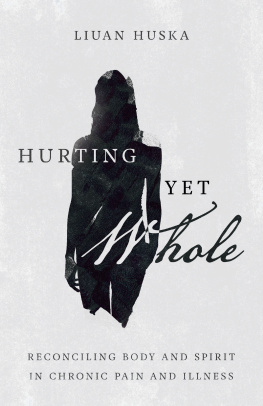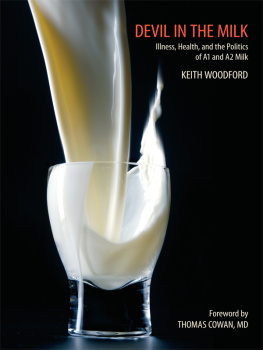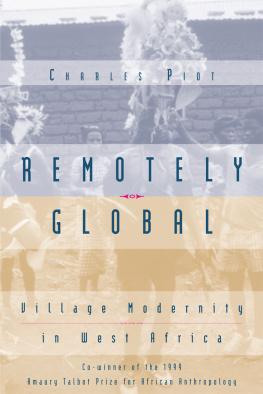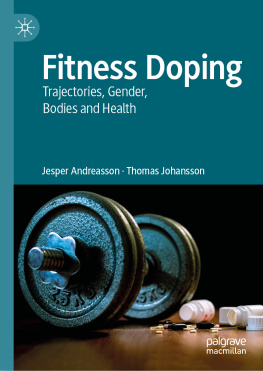THE DEVIL IS DISORDER
THE DEVIL IS DISORDER
Bodies, Spirits and Misfortune in a Trinidadian Village
Rebecca Lynch
First published in 2020 by
Berghahn Books
www.berghahnbooks.com
2020 Rebecca Lynch
All rights reserved. Except for the quotation of short passages for the purposes of criticism and review, no part of this book may be reproduced in any form or by any means, electronic or mechanical, including photocopying, recording, or any information storage and retrieval system now known or to be invented, without written permission of the publisher.
Library of Congress Cataloging-in-Publication Data
A C.I.P. cataloging record is available from the Library of Congress
Library of Congress Cataloging in Publication Control Number: 2019037852
British Library Cataloguing in Publication Data
A catalogue record for this book is available from the British Library
ISBN 978-1-78920-487-2 hardback
ISBN 978-1-78920-488-9 ebook
Contents
Figures
.
.
.
.
.
.
.
.
.
.
.
.
.
.
.
.
.
.
Acknowledgements
This book is based on a self-funded project conducted over a number of years while working in various research posts. The difficult path of simultaneously working and studying has left me with many people to thank for their support and assistance over the years. First, and most of all, I am very grateful for the time given and the guidance I received from my interlocutors in Trinidad. I follow the usual anthropological tradition of withholding names for anonymity, although Sayeed is an exception to this, as he has asked me to name him. I am extremely grateful for his direction and our discussions while in the village thank you Sayeed. Outside the village and surrounding area, there are a number of people who should also be mentioned for the much-needed support and discussion space while in Trinidad the wonderful Sarah Chin Yuen Kee (whose contribution through support, conversation and humour is totally immeasurable), Denesia Venus, Jamie OBrien, Christian Lee, Chenelle Dhean, Helga Crosby, Giselle Johnson, Bridget Andrews, and Renata Pooran and her family, and academics at the University of the West Indies (UWI) St Augustine, including Maarit Forde, Gabrielle Husain and Rhoda Reddock. I am also appreciative of the broader support of the Institute of Development and Gender Studies at UWI, especially librarian Tessa Ottley.
Back in the United Kingdom, I am extremely grateful for the ongoing inspiration, guidance and support of Roland Littlewood at University College London (UCL), and for the feedback on the book I received on this from Charles Stewart and Maurice Lipsedge. Danny Miller has also given valuable insights and extremely useful comments, and I am grateful too to Simon Cohn for support, inspiration and encouragement to work on this while also working as a researcher on his projects. I am very grateful to friends and former colleagues at the University of Cambridge, including Piers Vitebsky and other members of the Magic Circle, especially Tania Kossberg. Sarah Milton and Tania Kossberg gave extremely helpful feedback and discussions on my work as well as general support, and Kimberly Hovish and Alexia and Steven Rowley were particularly brilliant in their friendship, support and encouragement throughout.
While in the field, I discussed a dream I had had with Denesia. I was carrying out a research interview with a man who, in the dream, was called Mr Tattoo (there was no one of that name or anything similar that I met during my time in the field). As I spoke to Mr Tattoo, my father was sitting next to me, but he kept getting up and giving Mr Tattoo sugar sweet (sweets) in a silver holder. I found this very annoying as I felt it was interrupting the conversation and I was angry with my father. At some point in the interview, I realized that Mr Tattoo was actually the Devil and that the sweets my father was giving him were poisoned my father was therefore trying to protect me. Denesia, who is adept at dream interpretation, told me that silver and sugar/sweets ward off evil spirits. God is also seen as The Father, so the battle between God and the Devil had penetrated even my dreams there was no escape from my fieldwork. However I would also like to read the story as my family being with me and supporting me in my work, even from a distance. I am grateful for the encouragement and assistance of my mother and sister, who watched me persevere on this project over the years, and to my father, who sadly died shortly after I returned from the field. Thank you all so very much.
Introduction
Now there was a day when the sons of God came to present themselves before the LORD, and Satan came also among them. And the LORD said unto Satan, Whence comest thou? Then Satan answered the LORD, and said, From going to and fro in the earth, and from walking up and down in it. And the LORD said unto Satan, Hast thou considered my servant Job, that there is none like him in the earth, a perfect and an upright man, one that feareth God, and escheweth evil? Then Satan answered the LORD, and said, Doth Job fear God for nought? Hast not thou made a hedge about him, and about his house, and about all that he hath on every side? Thou hast blessed the work of his hands, and his substance is increased in the land. But put forth thine hand now, and touch all that he hath, and he will curse thee to thy face. And the LORD said unto Satan, Behold, all that he hath is in thy power; only upon himself put not forth thine hand. So Satan went forth from the presence of the LORD.
Job, 1:812, New King James Version (NKJV)
Having run I arrived in a considerably more ruffled and sweaty state than the others who, dressed smartly and respectfully, gradually joined the service in the villages Independent International Baptist Church (IIBC). The church was like many other buildings in the village, made of painted breezeblocks with a corrugated iron roof. Electric fans whirred away at the front of the room where Pastor Tom would lead the service, while I, like others, sought out space on a wooden bench where I could catch some of the breeze. I was welcomed to a seat by those around me, including Tina,1 who, after some hymns and prayers, herself led us in a very long prayer in a similar way I had heard her do in the Seventh Day Adventist (SDA) church where she was also an active member and attended regularly. We had both been at the Adventist services the day before and would see each other again at the SDA Sunday service that evening.
Like many other people locally, Tina had little money to live on. She lived alone in a small white house in a central area of the village, the back fence of her property adjoining the side boundary of the house in which I was staying. Her main income came from the local government employment programme where she cut back the fast-growing bush from encroaching on the roads in and around the village. This was supplemented by the little she made from selling her own homemade sweets to tourists along the nearby beaches. Like many other people locally, Tina hustled, getting by through various informal income sources. Tina had been brought up in the village by her grandmother who was also an Adventist, and while Tina had left the church as a teenager, she told me she always knew the truth and had always felt guilty for leaving. She had returned to the Adventist church some years ago and, now in her fifties, she attended both the Adventist and Independent Baptist church regularly. Church gave her spiritual encouragement, she told me, and she particularly enjoyed the hymns she sang there. Outside services, she spent time reading the Bible and engaging in prayer, knowing that the good relationship she maintained with God through her prayers and conversations with Him meant that He would look after her. Despite her meagre earnings, she always dressed respectably, wearing nicely cut dresses to the many church services she attended through the week, walking to and from these and her job since, like most people locally, she did not own a car.











